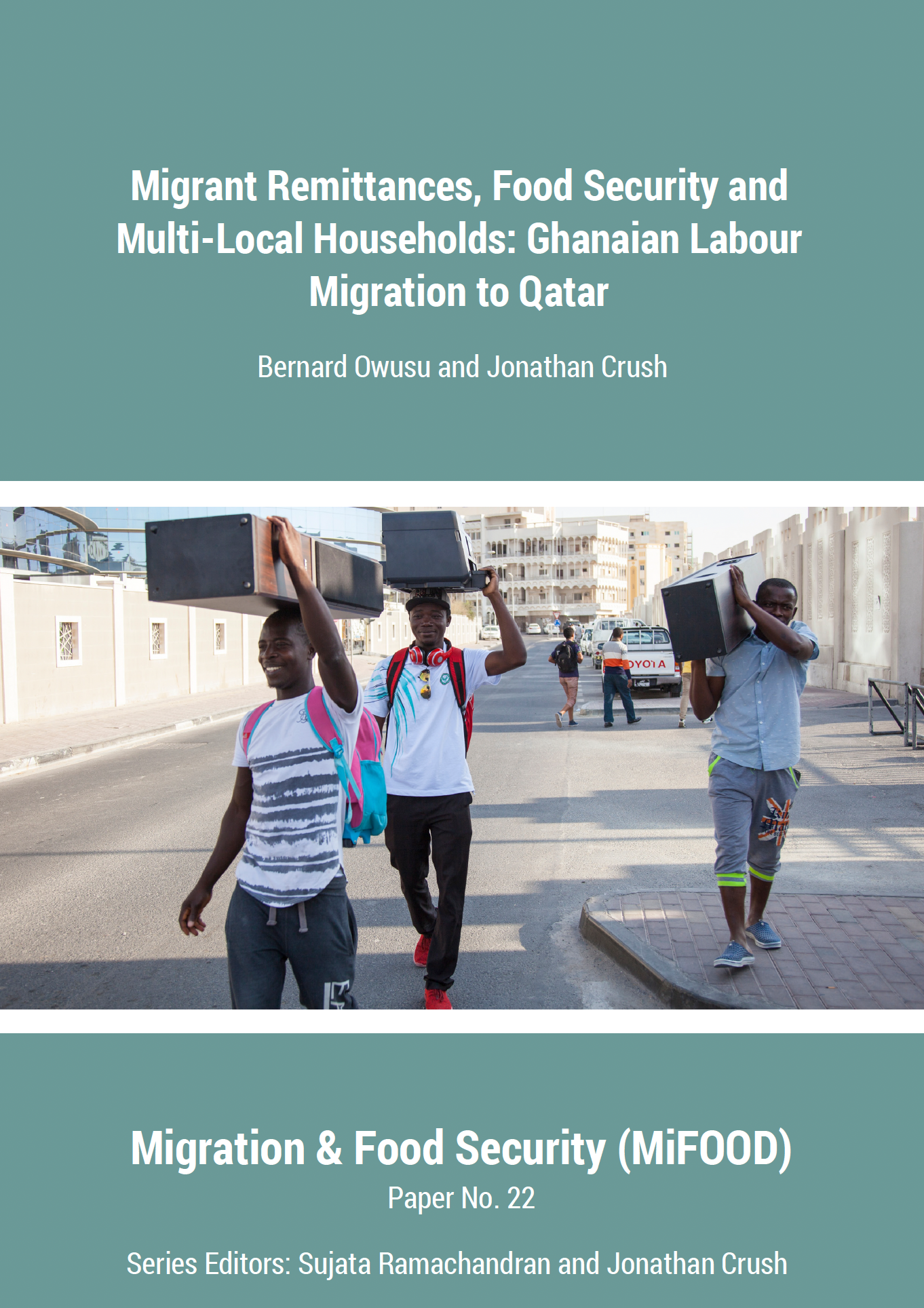This paper investigates the impact of migrant remittances on food security among multi-local households within Ghana and Qatar, focusing on the experiences of Ghanaian labour migrants. Through a mixed-methods approach comprising household surveys in Ghana and in-depth interviews with migrants in Qatar conducted from March to June 2023, the paper explores how remittances influence the food security status of recipient households and the socioeconomic conditions of migrants. The findings suggest that remittances play a critical role in enhancing household food security in Ghana by enabling better access to food and improving dietary diversity. Migrants prioritize sending money for basic needs, notably food purchases and education. However, the pressure to remit can adversely affect the migrants’ own food security in Qatar, leading to compromised nutritional choices and reduced food intake. The study concludes that while remittances significantly contribute to improving food security in Ghana, they also pose challenges to the well-being of migrants, highlighting a complex interplay between economic support and personal sacrifice within transnational familial networks.

